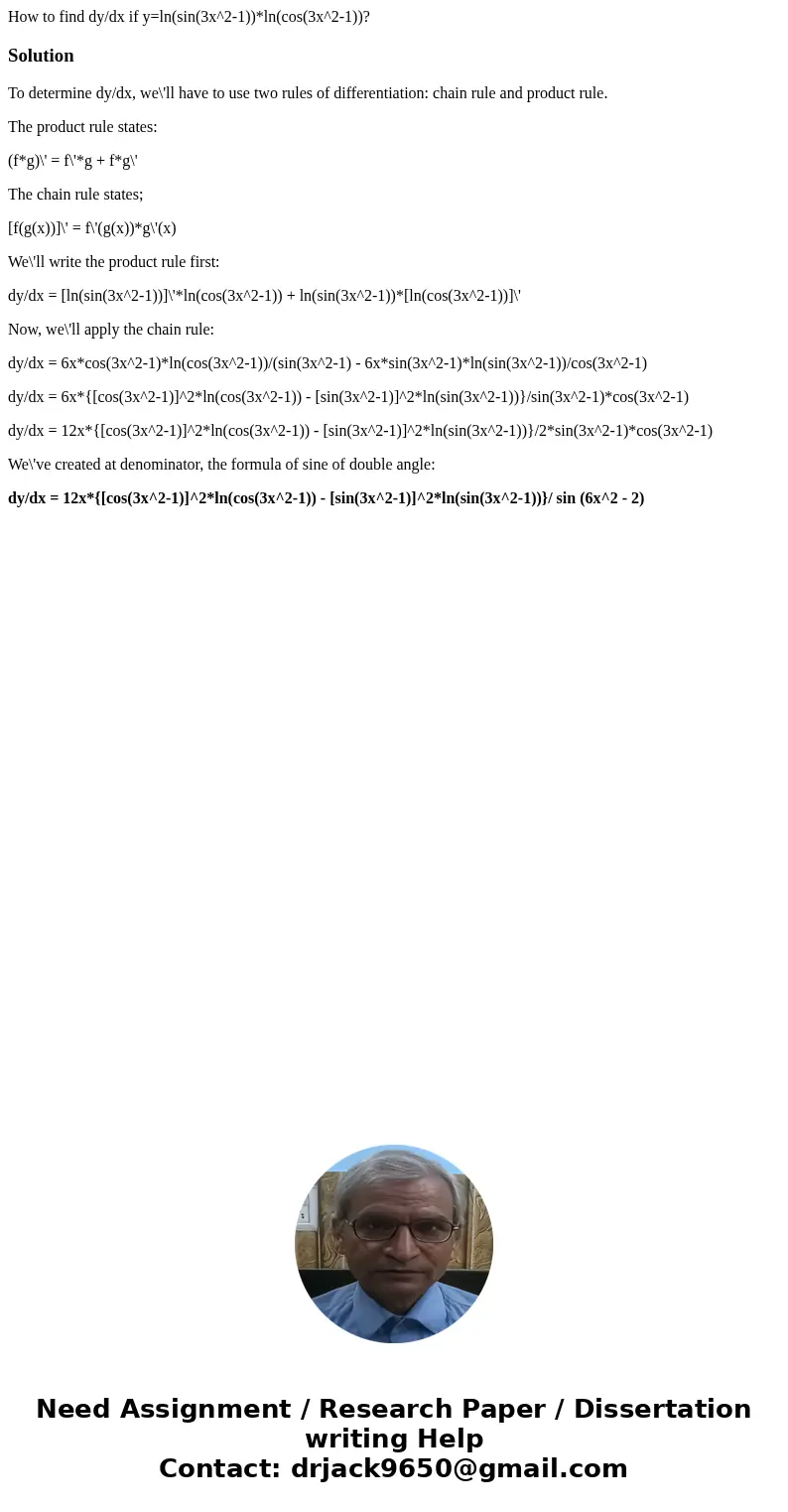How to find dydx if ylnsin3x21lncos3x21SolutionTo determine
How to find dy/dx if y=ln(sin(3x^2-1))*ln(cos(3x^2-1))?
Solution
To determine dy/dx, we\'ll have to use two rules of differentiation: chain rule and product rule.
The product rule states:
(f*g)\' = f\'*g + f*g\'
The chain rule states;
[f(g(x))]\' = f\'(g(x))*g\'(x)
We\'ll write the product rule first:
dy/dx = [ln(sin(3x^2-1))]\'*ln(cos(3x^2-1)) + ln(sin(3x^2-1))*[ln(cos(3x^2-1))]\'
Now, we\'ll apply the chain rule:
dy/dx = 6x*cos(3x^2-1)*ln(cos(3x^2-1))/(sin(3x^2-1) - 6x*sin(3x^2-1)*ln(sin(3x^2-1))/cos(3x^2-1)
dy/dx = 6x*{[cos(3x^2-1)]^2*ln(cos(3x^2-1)) - [sin(3x^2-1)]^2*ln(sin(3x^2-1))}/sin(3x^2-1)*cos(3x^2-1)
dy/dx = 12x*{[cos(3x^2-1)]^2*ln(cos(3x^2-1)) - [sin(3x^2-1)]^2*ln(sin(3x^2-1))}/2*sin(3x^2-1)*cos(3x^2-1)
We\'ve created at denominator, the formula of sine of double angle:
dy/dx = 12x*{[cos(3x^2-1)]^2*ln(cos(3x^2-1)) - [sin(3x^2-1)]^2*ln(sin(3x^2-1))}/ sin (6x^2 - 2)

 Homework Sourse
Homework Sourse